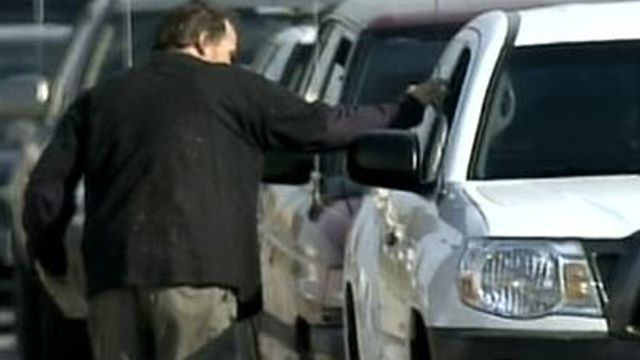Local News
Fayetteville Leaders Want to Ban Panhandling
Some Fayetteville leaders say they want to ban panhandling in the All-American City.
Posted — UpdatedFAYETTEVILLE, N.C. — Some Fayetteville leaders tell WRAL News that they want a new ordinance that would ban panhandling in the All-American City.
Currently, panhandling is legal as long as a person asking for money does not step into the street or block traffic. In most other cities, the behavior is restricted.
Those wanting the ban say panhandling is a growing problem, especially near shopping areas. Some locals say they feel pressure to give.
"It's a scam," said Stacy Swinton, who serves as the Homeless Project Officer for the Fayetteville Police Department. "A lot of them that do that, pull into Wal-Mart, park their nice cars and go to the corner, put on some grubby clothes. They make a living off that."
Local police say that panhandlers can sometimes collect up to $400 in a day and that, in general, they pocket the money or use it for drugs instead of food.
Larry Buckner, known as "Radar" on the streets, however, says not all panhandlers are trying to scheme the public or make a living off of begging for money.
"I need to have some way to eat," said Buckner, who has been on the streets for more than a year. He said he does not drink and is trying to get a job.
"Fayetteville needs a different solution besides putting the homeless in jail or putting them on a bus out of here," Buckner added.
City leaders say they have only discussed an ordinance and that nothing has been proposed. They expect to work out the details within the next couple of months.
In the meantime, Swinton urges the public not to give money to panhandlers. Instead, they should donate fund or useful goods, such as blankets, clothing and hygiene items to the Homeless Project.
Donations can be made at the Fayetteville Police Department at 467 Hay St.. For more information, call 910-433-1846 or 910-433-1033.
• Credits
Copyright 2024 by Capitol Broadcasting Company. All rights reserved. This material may not be published, broadcast, rewritten or redistributed.





